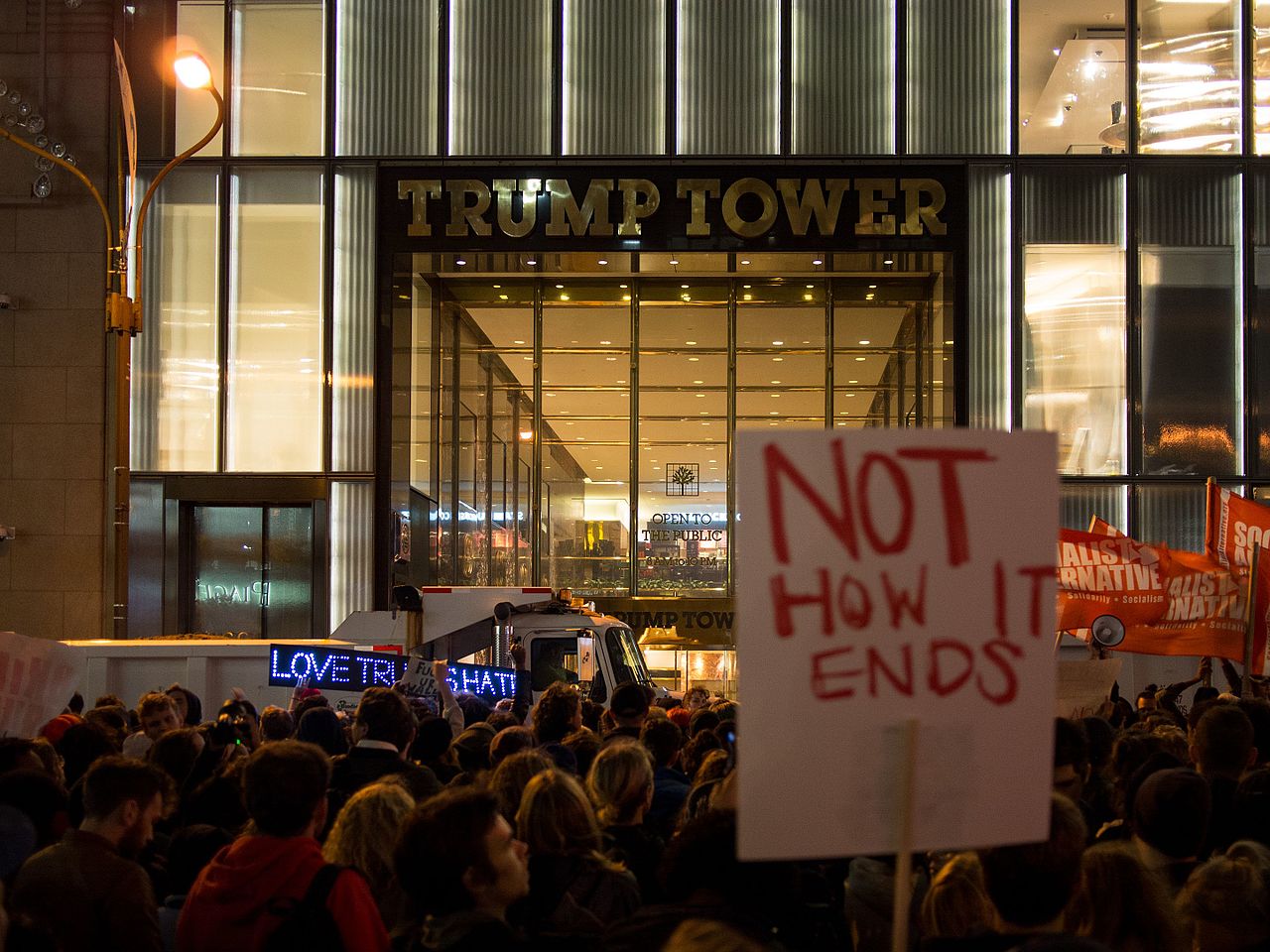Views expressed in opinion columns are the author’s own.
The morning after the 2016 election was, quite literally, heavy. I remember emerging from my dorm and facing rain, gray skies and a note written on my door’s whiteboard that read, “UP! Like Trump.” All of my classes were canceled and, at least within my circles, no one was able to say anything of comfort or substance; rather, it was a day tinged with underlying feelings of uncertainty and sadness. I remember my dad sending me an article about Trump’s win titled, “An American Tragedy.”
Last week marked one year since the day many labeled as an “apocalypse in American politics.” This anniversary requires reexamination of what has and hasn’t changed, what has and hasn’t been normalized, what has been done and what is still left to do.
We are living in a time of extraordinary, vital and transformative change. Progressive, grassroots movements — such as Black Lives Matter, Occupy Wall Street and the Women’s March — have had a number of victories; popular power catalyzed change as recently as last week, when elections swept a number of minority democratic candidates to office across the country.
The changes our country has undergone, both revolutionary and terrible, are unparalleled. That being said, we are also living in a nightmarish time — a time that normalizes violence and tragedy to an alarming degree. The antidote to this time, in which the man leading our country seems to have no capacity for connection or empathy, is hope.
The dark forces of the world thrive off the belief that everything is hopeless: that we have no agency or power, and not only can we not win, but also there is really no point in fighting. Feminist theorist and author Rebecca Solnit explores this in her now-famed book, Hope in the Dark, which argues vehemently for the importance and power of being hopeful.
She argues, “Hope locates itself in the premises that we don’t know what will happen and that in the spaciousness of uncertainty is room to act. Hope is an embrace of the unknown and the unknowable, an alternative to the certainty of both optimists and pessimists.” This argument for hope is predicated on the fact that we do not know what will happen next, but the unlikely and the unimaginable do, in fact, transpire quite regularly.
In this discussion it is important to define what hope is not: It is not a mindset that claims everything ever was, is or will be fine. It is not a sunny, everything-is-getting-better narrative, although it can counter the popular everything-is-getting-worse one. Hope doesn’t mean denying the concrete realities that impact and shape our individual lived experiences; rather it is facing all of those individual narratives, both good and bad, and remembering the movements, heroes and shifts in consciousness the 21st century has brought.
The more I return to the election, the more I see it as an inflection point. The fear of the unknown so many felt after Trump’s victory has, at least for me, morphed into a type of motivation. I remember the word “apocalypse,” translated from Greek, does not, in fact, mean the end of the world. It means the end of concealment; the lifting of a veil; the truth. In our political context, it means reckoning with the issues and problems we’d have to tackle even if Trump had never been elected.
This way of thinking about hope — as a radical mindset and opportunity — is particularly salient to young people in the midst of their formative and dynamic college years. It’s easy to give oneself over to the reserved complacency that comes with losing hope, particularly when existing in the homogenous echo chambers that seem inevitable on a college campus.
Combating this complacency, however, requires remembering the individual power we each hold by simply being hopeful, and acknowledging that one person cannot undo all of the progress our country has made. Whether we combat these dark forces that aim to rid us of our hope, our progress and the world we all want is entirely up to us.
Sarah Riback is a sophomore English and sociology major. She can be reached at riback.sarah@gmail.com.



